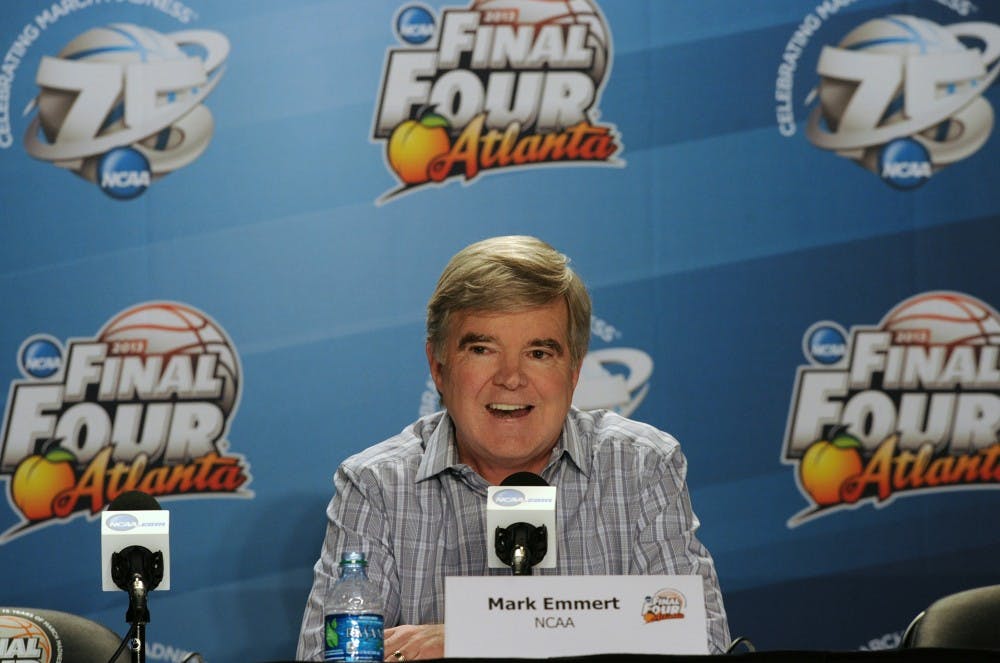It’s difficult to find someone who believes that investigations conducted by the National Collegiate Athletic Association (NCAA) are carried out in the best possible way – and for good reason.
With the ongoing investigation of academic fraud at the University of North Carolina at Chapel Hill potentially nearing its end, the NCAA's mishandling of UNC’s case, among others, has been brought to attention.
“The biggest complaints you hear are the length of time it takes for investigations and whether they really are getting at the most important issues sometimes or whether they’re even capable of getting at them,” said Jon Solomon, a national college football reporter for CBS Sports.
While the length of investigations should be trimmed down, the NCAA is not always to blame for this, sometimes they don’t have the full cooperation of the university, teams and coaches.
However, the NCAA often does not pursue cases that should take precedence.
“I would surmise that the biggest issues that NCAA enforcement should look at would be academic fraud and player health and safety, and they really don’t do player health and safety at all,” Solomon said. “They have guidelines more so than rules. A player could die and it could be someone’s fault from the athletic department and they’ll leave it to the court systems or the police and they won’t investigate that, but if there’s extra benefits, they’ll look at that.”
Although the NCAA has done a fair job of going after important cases, it is not uncommon that they ignore troubling testimonies and push them to the side. On the other hand, sometimes they pursue investigations that don’t violate any NCAA rules and are beyond their authority.
B. David Ridpath, associate professor of sport management at Ohio University and president of The Drake Group, an organization aiming for academic integrity in college athletics, said that there is inconsistency with the cases taken on by the NCAA.
“There are many times that the NCAA will maybe try to run away from investigations, but other times they’ll run toward investigations trying to make themselves look better,” Ridpath said. “The only thing consistent about their investigations is inconsistency.”
Cases are often either studied in detail or not based on what has gained publicity through the media. For example, the Pennsylvania State University sex abuse scandal involving former assistant football coach Jerry Sandusky was pursued by the NCAA when it should’ve been handled in court.
The NCAA should outsource its investigative staff so that investigations are always conducted by an impartial group that is not affected by the media and has no special interest in the case.
“It needs to be a separate independent body that is able to actually do thorough investigations and simply follow the letter of the law without a conflict of interest,” Ridpath said. “In NCAA investigations, you have people sitting in judgment of you who might have a valid interest in the outcome of the case.”
In allowing the NCAA to investigate itself, there is a greater potential for injustice because the association is inevitably interested in both how they are perceived by the public and how the case plays out.
Therefore, by having an objective jury, such as the American justice system, make decisions on these investigations, the NCAA could let in “adversarial organizations like the press to make sure that people are following the rules and standards they should be following, to be criticized and force change when applicable,” Ridpath said.
The NCAA has certainly improved over time in its infractions process, especially with enforcing consistent sanctions on offenses such as recruiting violations. However, its issues seem to be more with the process than the punishment.
From academic fraud to player health and safety to partial investigations, there is a lot that the NCAA could do to improve upon its existing procedures.
“Sunshine is the best disinfectant, and right now a lot of things go on in this system that a lot of people don’t see,” Ridpath said. “Many of these things need to be transparent and open to make sure that those rules are being followed.”
Reach the columnist at alexwolfe3098@gmail.com or follow @alexandracwolfe on Twitter.
Editor’s note: The opinions presented in this column are the author’s and do not imply any endorsement from The State Press or its editors.
Want to join the conversation? Send an email to opiniondesk.statepress@gmail.com. Keep letters under 300 words and be sure to include your university affiliation. Anonymity will not be granted.
Like The State Press on Facebook and follow @statepress on Twitter.





